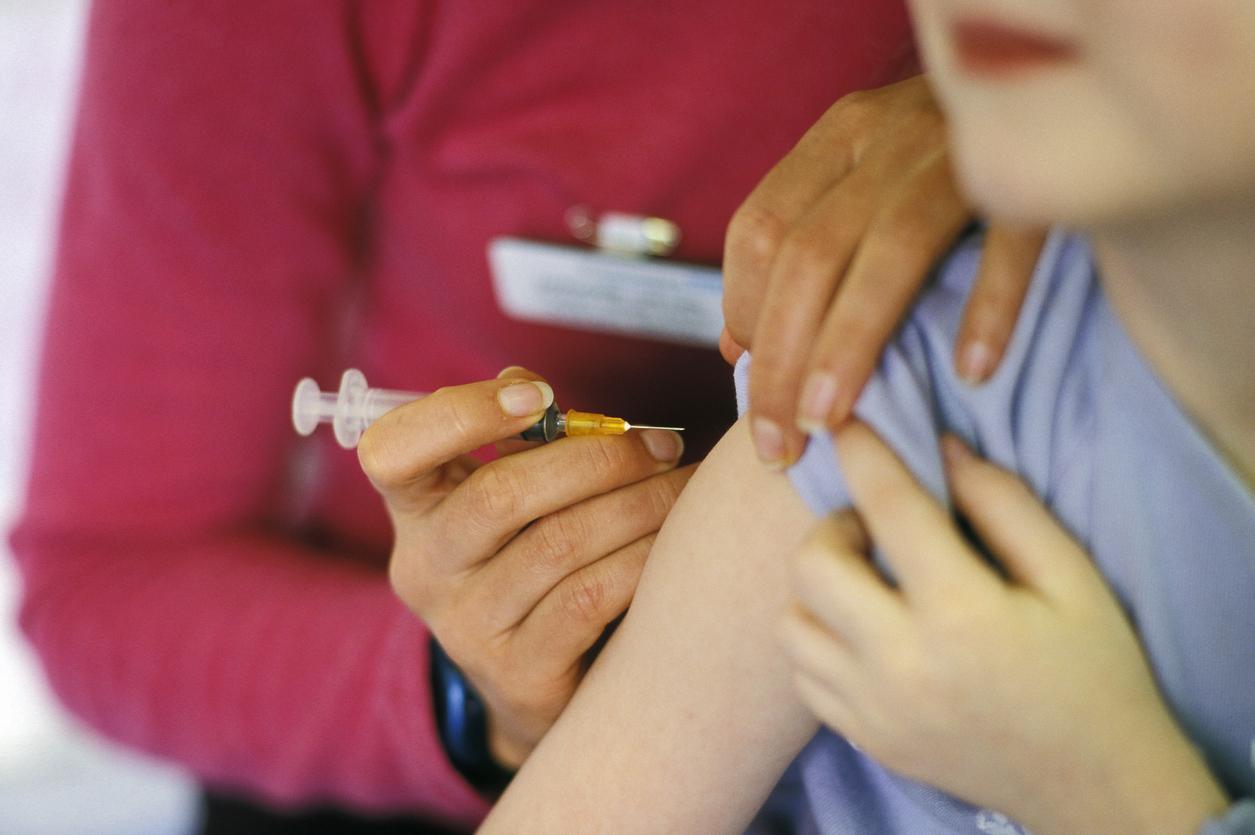Developed by the Ministry of Health, after consulting the High Authority for Health (HAS), the 2022 vaccination schedule brings together all the recommendations applicable to people residing in France according to their age and issues “general” vaccination recommendations. ” as well as “particular” recommendations specific to specific situations (increased risks of complications, exposure or transmission) or occupational exposures.
On the occasion of European Vaccination Week which is currently taking place from 25 April to 1er May 2022, the Ministry of Health has just published the new 2022 vaccination calendarwhich introduces a number of novelties among its recommendations.
What’s new in the 2022 vaccination schedule
- Vaccination against meningococcal Bby Bexsero® is recommended for all infants: first dose at 3 months of age, second dose at 5 months and booster dose at 12 months.
- Vaccination against meningococcal B is also recommended for family circles of people at high risk of invasive meningococcal infections. A booster vaccination against meningococcal B every 5 years is recommended for people at continued risk of exposure to invasive meningococcal disease.
- Vaccination against whooping cough is recommended for pregnant women from the 2nd trimester of pregnancy, favoring the period between 20 and 36 weeks of amenorrhea (absence of menstruation), in order to increase the transfer of maternal antibodies and to ensure optimal protection of the new -born.
- Vaccination against seasonal flu is recommended for professionals occupationally exposed to porcine and avian viruses. This vaccination is a collective protection measure aimed at preventing the transmission of human influenza viruses to animals and not an individual protection measure against zoonotic porcine or avian viruses.
>> News related to the Covid-19 : the vaccination campaign against Covid-19 began on December 27, 2020 and continues in 2022 with the booster campaign and the vaccination of children. In total, the Haute Autorité de santé produced 25 opinions and 14 vaccination recommendations in connection with Covid-19 in 2021. As these recommendations are likely to change, it is recommended to consult regularly. the site of the High Authority for Health.
A new extension of vaccine skills
- Since this winter, community nurses and pharmacists can vaccinate all adults against seasonal flu, including those not targeted by the vaccination recommendations.
- Vaccines from the vaccination schedule, when prescribed by occupational doctors and school doctors, are now reimbursed by health insurance.
- Midwives, community pharmacists and nurses, without prior medical prescription for the act, will be able to administer certain non-living vaccines to people aged 16 and over targeted by the vaccination recommendations as soon as the texts are published.
What had changed in 2021
- Vaccination against papillomavirus (HPV) was extended to boys aged 11 to 14, with catch-up vaccination for those aged between 15 and 19. This recommendation has been applicable since January 1, 2021. In 2022, Public Health France continues to observe an increase in vaccination coverage among adolescent girls, with an increase of 5.2 points between 2020 and 2021. In 2021, for the 1st dose, the vaccination coverage among 15-year-old girls (born in 2006) was 45% compared to 40% in 2020 among 15-year-old girls (born in 2005). And 6% of boys aged 15 had received a dose of HPV vaccine by December 31, 2021.
- Recommendations for vaccination against influenza among professionals included fire and rescue service personnel (SDIS), home help service personnel (SAAD), and home help via CESU (individual employers) for the elderly or people at risk of severe flu.
- the Efluelda vaccine®, a quadrivalent influenza vaccine, obtained Marketing Authorization in April 2020 as part of a European evaluation procedure.
What are the mandatory and recommended vaccinations for children
Since January 1, 2018, 8 vaccinations, previously recommended, have become mandatory : these are vaccinations against whooping cough, invasive Haemophilus influenzae type b infections, hepatitis B, pneumococcal infections, invasive meningococcal serogroup C infections, measles, mumps and rubella, i.e. a total of 11 mandatory vaccinations. These 11 vaccinations are performed, unless there is a recognized medical contraindication, in the first 18 months of the child.
whooping cough : vaccination is carried out with a combined vaccine at two-month intervals, at the age of 2 months (8 weeks) and 4 months, followed by a booster at the age of 11 months. A booster shot of this vaccine is recommended6 at the age of 6 years.
Diphtheria, tetanus and polio : the primary vaccination comprises two injections at the age of 8 weeks and 4 months, followed by a booster at the age of 11 months. Subsequent boosters are recommended at age 6 and then between 11 and 13 years.
Invasive Haemophilus Influenzae type b infections : two injections 2 months apart at the age of 2 months (8 weeks) and at 4 months, followed by a booster at the age of 11 months.
Hepatitis B : two injections at the age of 2 months (8 weeks) and 4 months, followed by a booster at the age of 11 months
Invasive meningococcal infections : one dose at 5 months and a second dose at 12 months.
Human papillomavirus (HPV) infections: vaccination is recommended for all young girls and for all boys aged 11 to 14 years old with two doses spaced 6 to 13 months apart. In the context of catch-up vaccination, vaccination is recommended for both sexes between 15 and 19 years of age. Any new vaccination must be initiated with the vaccine Gardasil 9®. The vaccines are not interchangeable and any vaccination initiated with the Cervarix® must be completed with the same vaccine.
Pneumococcal infections : two injections two months apart at 8 weeks and 4 months of age followed by a booster dose at 11 months of age.
Measles Mumps Rubella : an injection at 12 months followed by a second injection between 16 and 18 months, regardless of the mode of care of the child.
Tuberculosis : vaccination is no longer compulsory for entry into nursery or school but it is recommended for children exposed to a high risk of tuberculosis, from the age of 1 month, ideally during the 2nd month . The children at risk are those born in a country with a high tuberculosis endemicity or one of whose parents is from these countries; children who must stay at least one month in countries with a high tuberculosis endemicity, those who have a family history of tuberculosis (collateral or direct ascendants) and children residing in Île-de-France, Guyana or Mayotte.
What are the recommended vaccinations for adults?
Diphtheria, tetanus and polio : adult boosters are recommended at fixed ages of 25, 45 and 65, then every 10 years.
Measles Mumps Rubella : catch-up for people born after 1980, to obtain a total of two doses of trivalent MMR vaccine (with a minimum delay of one month between doses), regardless of their history with respect to the three diseases.
Shingles : vaccination is recommended for adults aged 65 to 74, including people who have already had one or more episodes of shingles. A single dose and no reminder.
Source :
Read also :
- HIV vaccine: promising clinical trials are underway
- Everything you need to know about the different vaccines against covid
- Soon a messenger RNA vaccine against shingles?


















